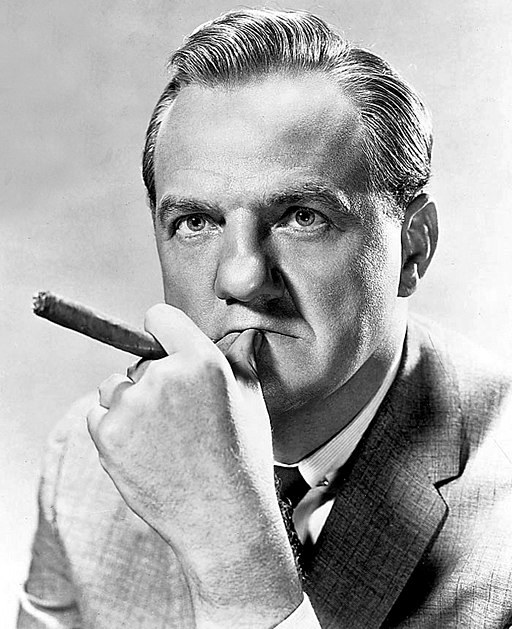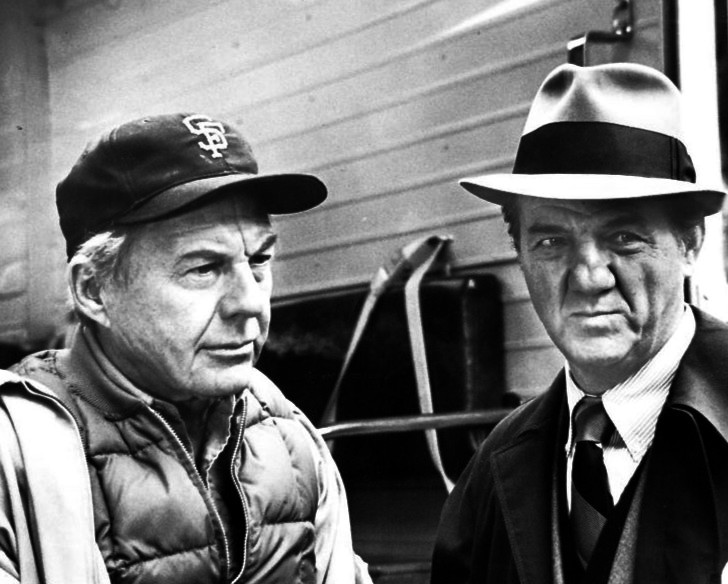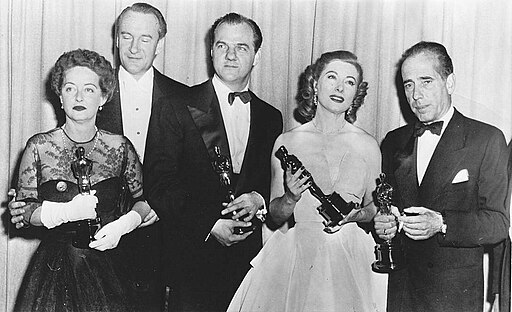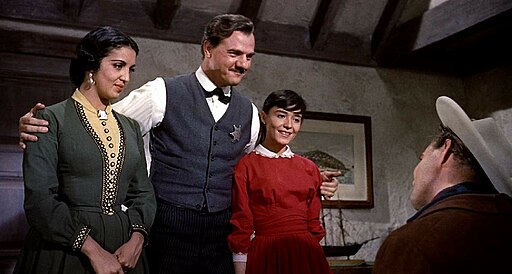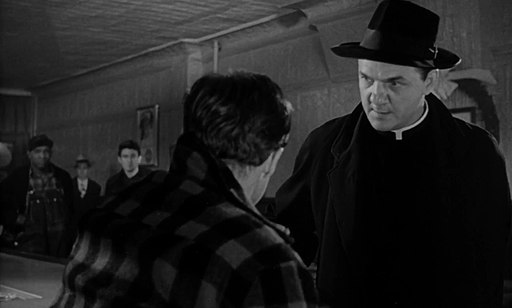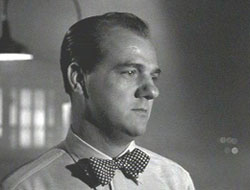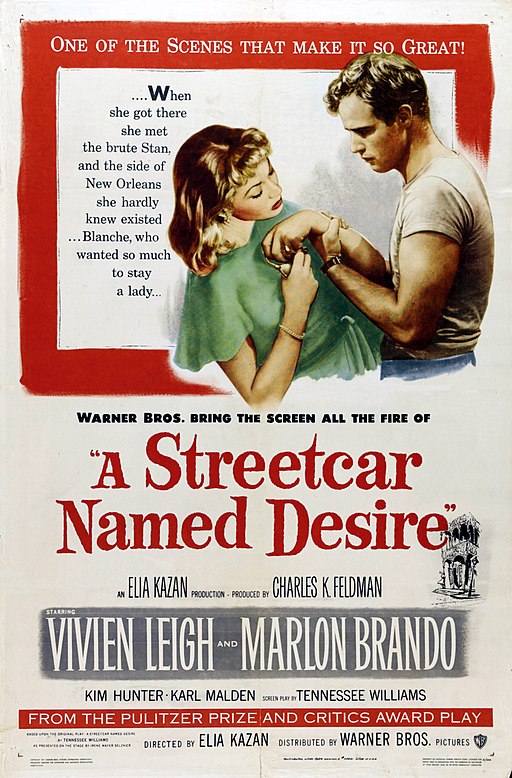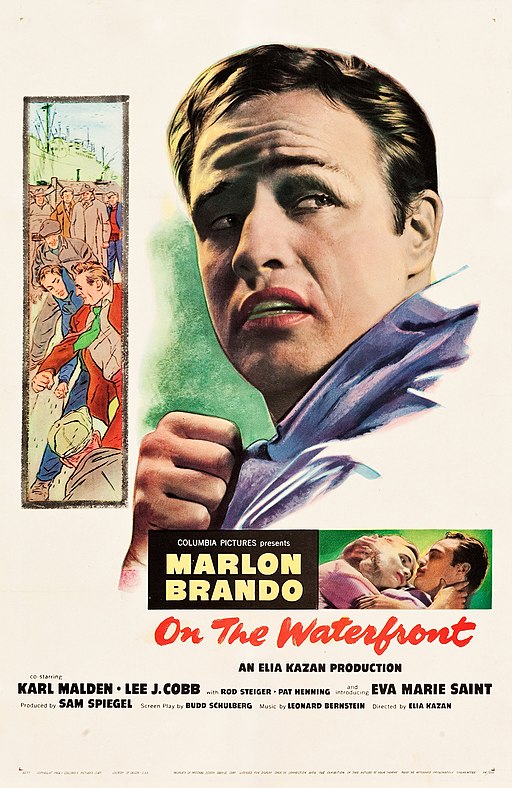Karl Malden
back| Full Name | Mladen George Sekulovich |
| Stage Name | Karl Malden |
| Born | March 22, 1912 |
| Birthplace | Chicago, Illinois, U.S. |
| Died | July 1, 2009 |
| Buried | Westwood Village Memorial Park Cemetery, Los Angeles, California, U.S |
| Married to | Mona Greenberg (married in 1938 until his death in 2009) |
| Children | He had two daughters, Mila and Carla |
| Notable films | A Streetcar Named Desire (1951) - On the Waterfront (1954) - The Gunfighter (1950) - Baby Doll (1956) - Polyanna (1960) - Patton (1970) |
Karl Malden
The Nose from Hollywood
Beyond his film career, Karl Malden is also well-remembered for his role in the television series "The Streets of San Francisco" (1972–1977), where he played Detective Lt. Mike Stone, starring alongside a young Michael Douglas. This role earned him critical acclaim and several Emmy nominations.
Malden's contribution to the arts was not limited to his acting; he also served as the president of the Academy of Motion Picture Arts and Sciences from 1989 to 1992.
Karl Malden was often referred to by the affectionate nickname "The Nose," a moniker that humorously referenced his distinctive profile, especially his prominent nose which became one of his most recognizable features.
Related
Karl Malden (1912 – 2009)
Biography and Career Overview
Karl Malden's life journey from the son of Serbian immigrants to one of Hollywood's most respected character actors is a testament to talent, perseverance, and the embrace of one's roots. Born Mladen George Sekulovich on March 22, 1912, in Chicago, Illinois, his early life was steeped in the working-class ethos of Gary, Indiana, where he was raised. His father, Petar Sekulovich, worked in the steel mills, and his mother, Minnie Sekulovich, was a seamstress. From these humble beginnings, Malden would rise to achieve cinematic immortality.
Malden's interest in acting was sparked during his high school years, but the path to his future career was not straightforward. Initially, he worked in the steel mills alongside his father, where an accident left him with a broken nose, a feature that would become one of his trademarks in Hollywood. His journey towards acting took a significant turn when he earned a scholarship to the Goodman School of Drama in Chicago, now part of DePaul University. His time there was crucial, honing his craft and setting the stage for his future in theatre and film.
After his education, Malden found work in the Federal Theatre Project, a part of the New Deal's Works Progress Administration, which was instrumental in developing his talents. His Broadway debut came in 1937, and he continued to work on the stage throughout the 1940s, including a notable role in "All My Sons" by Arthur Miller.
During World War II, Malden served in the United States Army Air Corps, but he returned to acting with vigor after the war. It was during this time that he changed his name to Karl Malden, a decision that would make him more recognizable to the American public.
His film career began to take off with "A Streetcar Named Desire" (1951), where his portrayal of Mitch earned him an Academy Award for Best Supporting Actor. This role, alongside those in "On the Waterfront" (1954) and "Baby Doll" (1956), cemented his reputation as a versatile and powerful actor capable of bringing depth to a wide range of characters.
Beyond the screen, Malden's personal life was marked by a deep commitment to his family. In 1938, he married Mona Greenberg, and their marriage was a testament to enduring love, lasting until his death in 2009. Together, they had two daughters, Mila and Carla, and their family life was characterized by warmth and stability, a contrast to the often tumultuous lives of Hollywood stars.
Malden's passions extended beyond acting. He was an avid reader and art collector, and he had a particular interest in American history. His service as the president of the Academy of Motion Picture Arts and Sciences from 1989 to 1992 showcased his dedication to the arts and his desire to give back to the community that had afforded him so much success.
On July 1, 2009, Karl Malden passed away at the age of 97 in his Los Angeles home. The cause of death was reported as natural causes. His passing marked the end of an era for Hollywood, but his legacy lives on through his iconic performances and the respect he garnered both on and off the screen. Malden's life story, from the steel mills of Indiana to the heights of Hollywood, is a narrative of perseverance, talent, and the enduring power of the human spirit.
Karl Malden receives Oscar for Best Supporting Actor:
Notable Movies featuring Karl Malden:
1940s
- "They Knew What They Wanted" (1940): Malden's film debut in a story about a simple winegrower who sends for a mail-order bride.
- "Winged Victory" (1944): A WWII propaganda film produced by the U.S. Army Air Forces, featuring Malden in a supporting role.
1950s
- "The Gunfighter" (1950): Malden plays Mac, the bartender, in this Western about an aging gunfighter looking to retire.
- "A Streetcar Named Desire" (1951): As Mitch, Malden portrays a sensitive and lonely man who becomes involved with Blanche DuBois. His performance won him an Academy Award for Best Supporting Actor.
- "On the Waterfront" (1954): Malden plays Father Barry, a tough priest who fights against corruption on the waterfront. The film is considered a classic of American cinema.
- "Baby Doll" (1956): In this controversial film, Malden plays Archie Lee Meighan, a failing cotton gin owner whose child bride is courted by his rival.
- "Fear Strikes Out" (1957): Malden portrays the father of baseball player Jimmy Piersall, dealing with his son's mental health struggles.
1960s
- "Pollyanna" (1960): As Reverend Ford, Malden is part of a story about a young orphan girl who brings joy to a small town.
- "The Great Impostor" (1961): This film tells the true story of Ferdinand Waldo Demara, with Malden playing a supporting role.
- "Gypsy" (1962): Malden is Herbie Sommers in this musical about the famous striptease artist Gypsy Rose Lee and her ambitious mother.
- "How the West Was Won" (1962): In this epic Western, Malden plays Zebulon Prescott, a character part of a family saga spanning several generations.
- "Birdman of Alcatraz" (1962): Malden portrays a prison warden in this film about a convicted murderer who becomes a renowned bird expert.
- "Patton" (1970): As General Omar Bradley, Malden plays a key role in this biographical film about General George S. Patton.
1970s
- "The Cat o' Nine Tails" (1971): Malden stars as a blind puzzle-solver in this Italian giallo film.
- "Meteor" (1979): In this disaster film, Malden plays a NASA official dealing with a meteor threatening to collide with Earth.
1980s
- "The Sting II" (1983): Malden plays a con man in this sequel to the popular film "The Sting," although it did not achieve the same success.
Analysis of the Acting Style of Karl Malden:
Karl Malden's acting style was characterized by its authenticity, versatility, and an innate ability to bring depth and complexity to every character he portrayed. His performances were grounded in a naturalistic approach, making his characters relatable and deeply human, regardless of the genre or setting of the film.
Authenticity
Malden's authenticity on screen stemmed from his methodical approach to understanding his characters' motivations, backgrounds, and emotions. He had a talent for infusing his roles with a genuine sense of being, often drawing from his own life experiences and extensive preparation to fully embody his characters. This authenticity made his performances compelling and believable, allowing audiences to connect with his characters on a personal level.
Versatility
Malden was known for his versatility, effortlessly transitioning between a wide range of roles, from sympathetic characters to complex antagonists. Whether playing a dedicated priest in "On the Waterfront," a vulnerable suitor in "A Streetcar Named Desire," or a conflicted general in "Patton," Malden showcased his ability to adapt to different personas, reflecting his comprehensive understanding of human nature. His filmography spans genres, including drama, thriller, western, and comedy, each performance marked by his distinctive ability to fully realize his character's narrative.
Emotional Depth
A hallmark of Malden's acting was his capacity to convey deep emotional depth, often through subtle expressions, gestures, and vocal nuances. His performances were layered, revealing the inner turmoil, conflict, or joy of his characters without overstatement. Malden's portrayal of complex emotions was nuanced, allowing the audience to perceive the underlying subtleties of his characters' psychological states.
Physicality
Malden's physical presence on screen was as significant as his emotional portrayal. His distinctive voice, expressive face, and the memorable broken nose (the result of a high school basketball injury) contributed to his strong screen presence. He used his physicality to enhance his characterizations, whether through imposing stances, gentle movements, or the intensity of his gaze, adding another layer of authenticity and relatability to his roles.
Collaborative Spirit
Malden was also noted for his collaborative spirit on set, working closely with directors and fellow actors to achieve the best possible outcome for the film. His approach was one of mutual respect and dedication to the craft of storytelling, evident in the strong performances that emerged from his collaborations.
Memorable Quotes from Karl Malden:
- On Acting and Characters: "I never thought of myself as a movie star. I'm just an actor who happened to be in movies."
- Regarding his Approach to Roles: "I don't play villains. I play people."
- On Success and Longevity in Hollywood: "My father told me, never have partners."
- Reflecting on his Career Choices: "I'm a workaholic. I love every movie I've been in, even the bad ones, every TV series, every play, because I love to work. It's what keeps me going."
- On Personal Integrity and Professionalism: "The best way to survive is to be honest."
- Regarding his Distinctive Appearance: "This nose has been three times broken. Once, you know, in a ball game, and then in an auto accident and in a fistfight."
- Life Philosophy: "I am a firm believer in learning from the past to help shape the future."
- On his Legacy: "I have worked with some of the meanest people in the world. You can't do anything to intimidate me."
Awards and Recognition:
Academy Awards
- 1952: Won the Academy Award for Best Supporting Actor for his role in "A Streetcar Named Desire."
- 1955: Nominated for the Academy Award for Best Supporting Actor for his role in "On the Waterfront."
Emmy Awards
Karl Malden received several Emmy nominations for his work in television, particularly for his role in "The Streets of San Francisco."
- Nominations: He was nominated for four Primetime Emmy Awards throughout his career, recognizing his work in both drama series and television movies.
Golden Globe Awards
- 1952: Won the Golden Globe Award for Best Supporting Actor for his role in "A Streetcar Named Desire."
- Nominations: Received nominations for his performances in both film and television.
Screen Actors Guild Awards
- 2004: Malden was honored with the Screen Actors Guild (SAG) Lifetime Achievement Award, recognizing his career and humanitarian efforts.
Other Honors and Awards
- Primetime Emmy Awards: Beyond nominations, Malden's television work, especially in "The Streets of San Francisco," was widely acclaimed.
- Hollywood Walk of Fame: He has a star on the Hollywood Walk of Fame for his contributions to the motion picture industry, located at 6231 Hollywood Blvd.
- AFI Life Achievement Award: Although not a recipient of the AFI Life Achievement Award, his body of work has been recognized in conjunction with these and other retrospective honors celebrating his contributions to cinema.
List of Movies with Karl Malden:
1940s
- "They Knew What They Wanted" (1940)
- "Winged Victory" (1944)
- "13 Rue Madeleine" (1947)
- "Boomerang!" (1947)
- "Kiss of Death" (1947)
- "The Gunfighter" (1950)
1950s
- "Where the Sidewalk Ends" (1950)
- "Halls of Montezuma" (1951)
- "A Streetcar Named Desire" (1951)
- "Diplomatic Courier" (1952)
- "Ruby Gentry" (1952)
- "Take the High Ground!" (1953)
- "I Confess" (1953)
- "On the Waterfront" (1954)
- "Baby Doll" (1956)
- "Fear Strikes Out" (1957)
- "Bombers B-52" (1957)
- "The Hanging Tree" (1959)
1960s
- "Pollyanna" (1960)
- "The Great Impostor" (1961)
- "One-Eyed Jacks" (1961)
- "Parrish" (1961)
- "All Fall Down" (1962)
- "Birdman of Alcatraz" (1962)
- "Gypsy" (1962)
- "How the West Was Won" (1962)
- "Dead Ringer" (1964)
- "Cheyenne Autumn" (1964)
- "The Cincinnati Kid" (1965)
- "Nevada Smith" (1966)
- "Hotel" (1967)
- "The Adventures of Bullwhip Griffin" (1967)
- "Blue" (1968)
- "Hot Millions" (1968)
- "Patton" (1970)
1970s
- "The Cat o' Nine Tails" (1971)
- "Wild Rovers" (1971)
- "Summertime Killer" (1972)
- "Beyond the Poseidon Adventure" (1979)
- "Meteor" (1979)
1980s
- "Miracle on Ice" (1981) (TV)
- "Word of Honor" (1981) (TV)
- "The Sting II" (1983)
- "Fatal Vision" (1984) (TV)
- "Alice in Wonderland" (1985) (TV)
- "Billy Galvin" (1986)
1990s and Beyond
- Malden's later years were more focused on television work and he did not feature in films after the mid-1980s.

